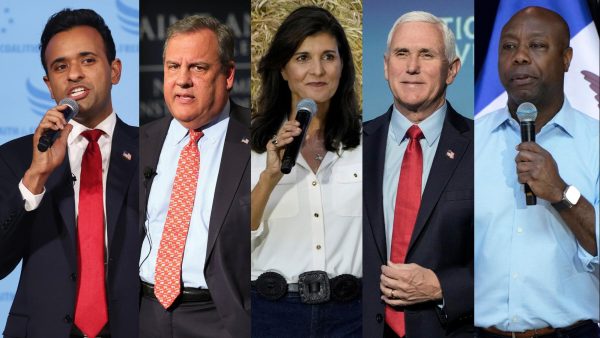Does America Need a Third Party?
January 13, 2018
At times, the “United” in United States seems like a misnomer. America’s polarization is visible in every facet of media. You need only turn on the television, open up social media, or listen to the radio to glimpse that massive amount of analysis, meta-analysis, and meta-meta-analysis on everything happening in the government. The news is just a shouting match, over ideologies, over credibility, and even over facts.
Polarization is a huge problem for any country. It prevents understanding of other opinions and forges distrust among peers, decreasing the effectiveness of the workforce and even breeds social disarray. A study by the Pew Research Group showed that among 10,000 people, over 19% said that they would be “disappointed” if a family member married someone on the opposite side of the political spectrum. 63% of those actively involved in politics believe that the other party is a danger to America.
The most obvious reason for this polarization is the lack of a third party in American politics. This causes people to associate with either the Republican Party or the Democratic Party, the left or the right. Upon association and subsequently being exposed to more of these people, moderates get drawn towards the edges. A third party would solve this polarization problem. Given a moderate position, many would choose the center rather than the fringes. This allows moderates to gravitate towards the center instead of outwards, preventing polarization.
There is also the issue of nonconformity. The same Pew research study cited above also found that just 30% of Americans identified consistently with one political party. However, the two-party system forces them to choose between extremes, misrepresenting their opinions. A third party gives more people the opportunity to voice their opinion.
Because this large moderate block is enough to maintain a stiff resistance to both the Left and Right wings, it would seem that a third party would readily emerge. Obviously, this is not the case in American politics, where less than 5% of all voters voted independent this presidential election. Compare this to Germany, where more than 40% of parliamentary representatives hail from outside the largest two parties. This huge difference is due to differences in the way democracy works. Germany’s parliament runs on Proportional representation, whereas the USA uses a Simple Plurality. Put simply, this means that in Germany, if your party gets half of the votes in one province, then your party gets roughly 50% of the representation in Parliament of that province. This ensures that if a political party has any backing at all, no matter how small, it will have a say in national politics. In America, however, the winner of a simple plurality takes all the representation. This makes it very difficult for new, small parties who are unlikely to make plurality to succeed, since no one wants to vote for a party that will not get any representation. Instead, voters choose the more tolerable of the 2 major parties to make sure their vote counts. This is why even well-established independent parties like the Green Party and the Libertarian Party have such trouble with garnering votes; it is always a gamble to vote for them.
As for the students of Ridge High School, the vote is split. Lily Chen, a freshmen from Ridge High School says that a third party “gives Americans a choice they like better than the two we have right now, so that would basically enfranchise more people”. Not only would more people have an opinion, a third party would also “bring new ideas into politics”. However, Ryan Zhang, a sophomore, says that a moderate party would “get nothing done”, being so moderate on every issue that they would just bicker over whether to choose a left or right wing solution. Ryan also proposed that moderates would be liable to “repealing laws they just passed,” again because of their supposed indecisiveness. This, however, is a fallacy, specifically false dichotomy. No decision is black or white. There need not be only a left or right solution. A Moderate Party would be capable of making its own solution.
For America, the choice is obvious – to adopt a third party is to depolarize America, to give a large portion of the American population a way to voice their opinion, and to provide a platform from which these newly found voices can contribute ideas and suggestions.





Sri Guttikonda • Feb 26, 2018 at 11:52 am
I think this is a wonderful viewpoint!